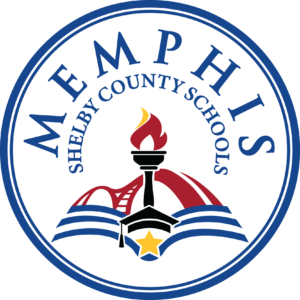Principal – High School

Website Memphis Shelby County Schools
#ChooseMSCS
PURPOSE AND SCOPE: The Principal provides the leadership and management necessary at Memphis-Shelby County Schools to maximize the efforts of teachers, and students, parents, and community. The principal also inspires and influences people to accomplish the District’s mission, vision, and strategic goals by motivating our urban community to do their best work for students. They are results-oriented, actionable, and critical thinkers who understand the demographic and culture that makes Memphis unique. Principals are responsible for directing all daily operations of the school campus, supervising and coordinating the work of all professional and classified personnel, ensuring subordinates’ adherence to District policies, regulations and goals. Additionally, the Principal is responsible for preparing required reports, and performing other professional, administrative and supervisory work as required. Principals also develop and implement programs within organizational policies; reports major activities to executive level administrators through conferences and reports.
ESSENTIAL FUNCTIONS: This position description is not intended to be an exhaustive list of all duties, knowledge or abilities associated with this classification, but are intended to accurately reflect the primary job elements.
ESSENTIAL JOB FUNCTIONS:
Builds capacity of educators to provide all students a rigorous curriculum, aligned with Tennessee state standards
• Utilizes shared leadership practices to build capacity of nearly all educators
• Develops an accurate understanding of Tennessee- adopted standards and instructional practices
• Analyzes, evaluates, and understands approved curriculum resources, including texts and district approved technological computer applications
• Maintains shared accountability when making needed adjustments to deepen classroom rigor
• Executes a system for monitoring student work for rigor and curriculum alignment
• Implements on-going strategies and feedback for other colleagues
Collaborates with educators to analyze and use multiple forms of data throughout the year to establish specific goals and strategies targeting student achievement and growth.
• Utilizes shared leadership practices and structures
• Builds capacity among the school leadership team and school staff when analyzing and using multiple sources of student, educator, and school-wide data
• Develops and monitors a school- wide data plan that includes the following:
1. student progress tracking
2. establishing specific strategies to meet or exceed academic and behavioral growth and achievement goals
3. baseline comparisons to benchmarks throughout the year
4. time for instructional adjustments informed by data
• Maintains shared accountability for instructional decisions, targeting achievement and growth goals
• Establishes data-specific growth and achievement while planning for targeted areas of improvement
Leads educators to develop and execute interventions to address all student learning needs grounded in multiple sources of data (academic, social, and/or emotional).
• Utilizes shared leadership practices that demonstrate support for educators
• Uses multiple sources of data to develop and implement differentiated interventions within and outside normal class structures
• Sets and meets goals and targets for individual students and sub-groups
• Develops intervention schedules
• Monitors and adjusts interventions, as needed
• Establishes an organizational system whereby traditional and special educators jointly develop and deliver appropriate interventions
• Maintains shared accountability for implementation, fidelity, and the quality of intervention outcomes
Systematically monitors and adjusts progress toward established goals and facilitates procedures and practices leading to continuous improvement.
• Incorporates collaborative school- wide planning that addresses students’ academic growth and/or behavior growth goals
• Builds the capacity of school staff to lead, monitor, and adjust planned and implemented school, grade, and classroom level strategies
• Regularly leads processes for educators to assess and provide input on practices that present evidence of improvement
Leverages educator strengths to engage all students in meaningful, relevant learning opportunities
• Engages with the school leadership team to review multiple data sources (including school goals and student learning needs) to determine optimal educator grade level and/or content area placement
• Creates a coherent system to extend the impact of educators at all performance levels
• Develops and/or sustains a collegial environment where learning communities use their collective strengths, skills, and experience to improve classroom practice
Fosters a safe, respectful, and orderly learning environment for all
• Leads in setting expectations for the learning environment that are mission and vision aligned
• Reviews behavioral data to assess the effectiveness of routines and making any needed adjustments
• Identifies classroom-level behavioral/safety targets and recognizing students when targets are met or exceeded
• Attends after school, special, and evening events and school activities
• Oversees, through administrative team, the school’s athletic program
• Supervises the daily use of school facilities for both academic and non-academic purposes
• Performs duties and tasks required by a High Principal at a school campus
• Oversees program development and monitors special programs, projects, and initiatives
Takes measures to actively involve families in the education of their children
• Establishes a two-way communication process for families
• Provides information about student progress and learning expectations
• Is readily accessible to all regardless of socioeconomic, cultural or linguistic diversity
• Establishes and sustains visible family and community partnerships
Models and communicates expectations for individual and shared ownership of student, educator, and school success
• Enacts procedures that reflect a school-wide commitment to the possibility of success for all students
• Frequently assesses shared ownership by seeking feedback and input from members of the school community
• Clearly and consistently uses multiple means to communicate educators’ individual responsibility for whole school success
• Establishes a culture where nearly all members of the school community address low expectations about student potential
Recognizes and celebrates improved educator and student performance related to school vision and goals
• Creates school rituals, traditions, and initiatives
• Recognizes faculty, staff, and student performance
Implements and monitors a rigorous evaluation system using an approved Tennessee evaluation model and uses educator evaluation data to inform, assess, and adjust professional learning goals and plans
• Builds and sustains a culture focused on continuous improvement, such that educators view the evaluation process as an opportunity for professional learning and growth
• Holds self and others accountable for customizing supports for educators
• Creates a school-wide plan for professional learning aligned to the school’s vision for professional learning and growth
• Accurately modifies school or grade-level professional learning goals and plans
Engages faculty and self in data-informed, differentiated professional learning opportunities for educators, aligned with the Tennessee Standards for Professional Learning
• Ensures all professional learning activities align with the Tennessee Standards for Professional Learning
• Engages leadership team to differentiate professional learning opportunities based on educator needs and preferences
• Engages leadership team to facilitate implementation of knowledge and skills gained from professional learning activities
• Develops accountability structures whereby nearly all educators seek to share knowledge gained from learning opportunities
Collaborates with others to induct, support, retain and grow/extend effective educators based on evidence of student and educator outcomes
• Designs and implements an induction program for new educators
• Develops strategies for retaining high-performing educators
• Develops strategies for fostering leadership skills in the most effective educators based on evidence of student and educator outcomes
• Supports the development of nearly all teachers utilizing a variety of methods
Identifies and supports potential teacher-leaders and provides growth opportunities in alignment with the Tennessee Teacher Leadership Standards
• Involves teacher-leaders in activities aligned with the Tennessee Teacher Leadership Standards
• Uses a variety of data to identify potential teacher-leaders
• Communicates a clear leadership pathway for potential teacher-leaders
• Provides sufficient growth opportunities to address specific leadership actions and behaviors
• Provides potential teacher-leaders with varied leadership opportunities
• Monitors teacher-leaders in a variety of settings and providing specific feedback to support their continued development
Improves self- practices based on multiple sources of feedback, including performance evaluation results and self-reflection
• Actively seeks feedback from a variety of sources to reflect on personal instructional leadership practices and makes any necessary changes for improvement
• Connects personal leadership practices to student achievement and educator performance by sharing his/her performance evaluation results with staff
• Reflects on leadership alignment with core values, school vision, and goal attainment
Strategically utilizes community resources and partners to support the school’s mission, vision and goals
• Assesses potential community partners and secures additional resources that support teaching and learning
• Highlights usage of resources and shares school accomplishments by regular communication with community partners
Includes a diverse set of educators and stakeholders in school improvement decisions
• Develops and builds the capacity of educators to implement structures for engaging diverse stakeholders to provide input and feedback in school improvement decisions
• Establishes, communicates, and enforces a set of standard operating procedures and routines aligned with district, state and federal policy and performs all budgetary responsibilities with accuracy, transparency, and in the best interest of students and staff
• Leads staff and students in frequent reviews of standard operating procedures to vet effectiveness of procedures and routines supporting the effective and efficient operation of the school
• Leads staff in frequent reviews of fiscal resource allocation to support the effective and efficient operations of the school
Performs other related duties as assigned or directed.
MINIMUM QUALIFICATIONS:
1. Requires education or training equivalent to a master’s degree in educational administration or supervision from an accredited college or university.
2. State certification in Administration/Supervision at the elementary and/or secondary level, Educational Leadership, or an equivalent certification as defined by the Tennessee Department of Education.
3. Requires seven (7)years of progressively more responsible experience in teaching and administration or supervision, some at the high school level with two (2) years in a supervisory or leadership capacity.
4. An equivalent combination of training, and experience which provide the knowledge, abilities and skills necessary to perform effectively in the position may be considered (Examples: Adult Higher Education, MBA, Organizational Management, and Public Administrations) (PROOF OF EDUCATION, TRAINING, AND/OR EXPERIENCE IS REQUIRED)
Degree Equivalency Formula:
Bachelor’s Degree= 4 years plus required years of experience.
Master’s Degree=6 years plus required years of experience.
KNOWLEDGE, SKILLS, AND ABILITIES:
• Demonstrated understanding of Tennessee-adopted standards and instructional practices.
• Have a history of increasing student achievement.
• Ability to translate the school’s vision into action and results.
• Demonstrated ability to inspire and lead teams to achieve ambitious student achievement goals.
• Possess a history of dynamic leadership with a diverse range of experiences in an urban school setting.
• Demonstrated communication and interpersonal skills at a high level.
• Can demonstrate knowledge of principles, practices, materials, and equipment used in modern public school education and an ability to apply them to the needs of the school.
• Knowledge of current curriculum and instructional practices and trends.
• Ability to plan, organize, and coordinate comprehensive instructional programs
PHYSICAL REQUIREMENTS AND WORK ENVIRONMENT
Physical Demands: Requires sedentary work involving standing or walking for brief periods, exerting up to 10 pounds of force on a regular basis; and some dexterity in operating office equipment. Unavoidable Hazards: The position is exposed to no unusual environmental hazards. Sensory (ADA) Requirements: The position requires normal visual acuity and field of vision, hearing and speaking abilities.
AMERICANS WITH DISABILITIES ACT COMPLIANCE
MSCS is an Equal Opportunity Employer. MSCS provides reasonable accommodations to qualified persons with disabilities. Prospective and current employees are encouraged to discuss ADA accommodations with management.

